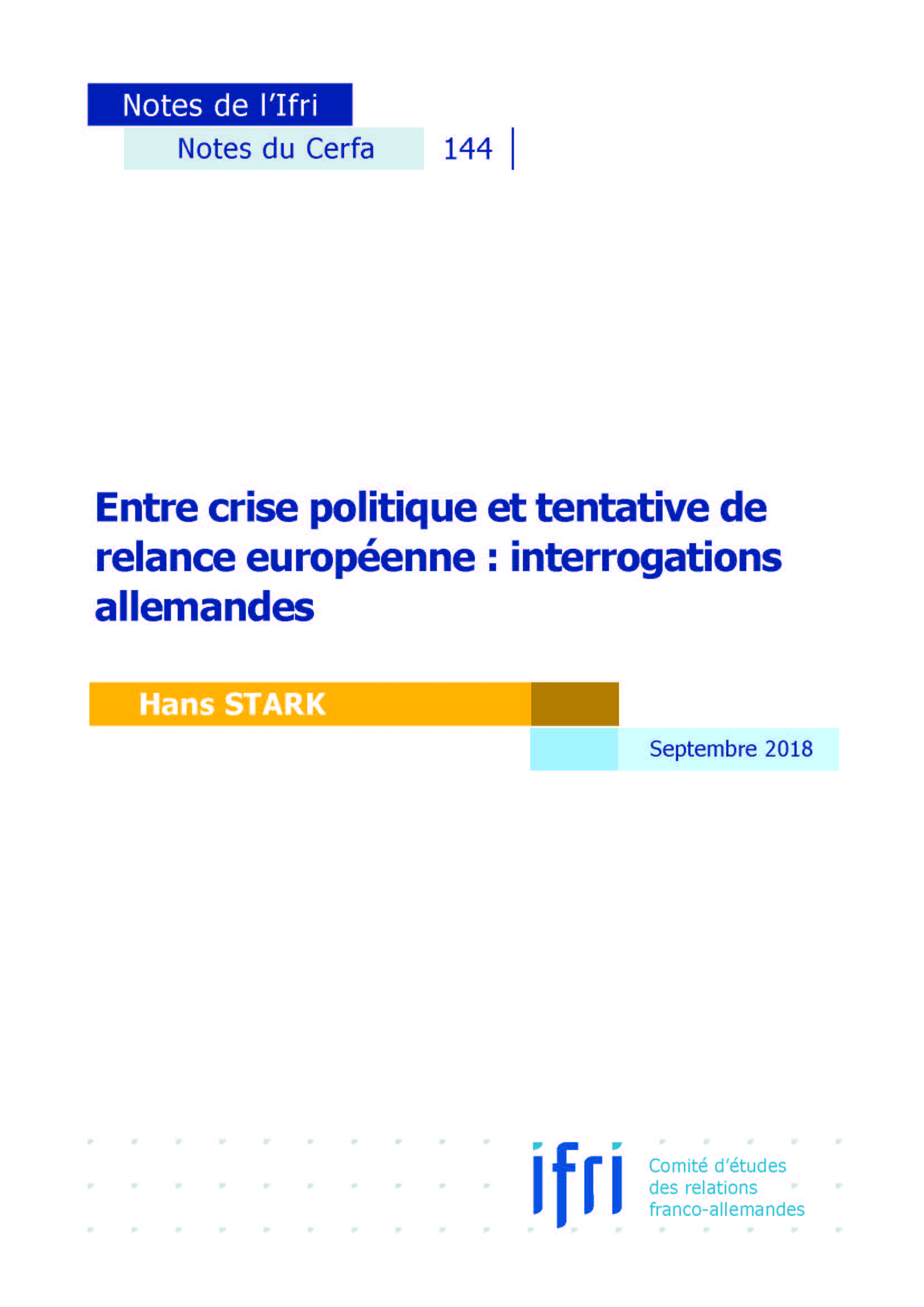Between political crisis and European recovery attempt: German interrogations

Even though the CDU-CSU led Grand Coalition was renewed following the German legislative elections of 24 September 2017, and even though Angela Merkel was re-elected chancellor a fourth consecutive term, the country has entered a period of growing political uncertainty. The formation of a new government took much longer than after previous elections for a number of different reasons: after negotiations, the liberal party refused to join a coalition with the CDU-CSU and the Green party, the SPD was reluctant to continue in government, and, above all, the internal divisions of the two sister parties CDU et CSU, that nearly caused the fall of the new government three months after its investiture.
These recurrent crises are due to the strengthening of the national-populist party AfD that became Germany’s third party, to the reorientation of the liberal party, but also and in particular to the erosion of traditional parties that are reflecting upon their own ideological profile. The union of CDU-CSU is torn between opposing political trends while the SPD, whose crisis falls within the decline of European socialist parties, is fighting for survival.
In this context, Germany is focusing on internal political and public issues rather than on major European issues that divide the governing parties. Currently, there is no majority in favour of wide-ranging European reforms in Germany. Due to a lack of internal consensus, Berlin will therefore in the coming months not be able to take up, together with France, a leading role in the European integration.
Since 1991, Hans Stark has been General Secretary of the Committee for Studies of Franco-German Relations (Cerfa) at the French Institute of International Relations (Ifri), where his main interests are German foreign politics and German European politics.
This contents is available in french only: Entre crise politique et tentative de relance européenne : interrogations allemandes.
Related centers and programs
Discover our other research centers and programsFind out more
Discover all our analysesThe Franco-German Brigade and the Revival of European Defense
One thing has been clear since Donald Trump's return to the White House: the very existence of the European unification project is threatened. Unless it develops a sovereign defense policy to counter the war in Ukraine and the weakening of American security guarantees, the European Union will continue to see its internal cohesion and external attractiveness wane.
Friedrich Merz and the Zeitenwende 2.0. A “New Era” for Transatlantic Relations?
On February 23, 2025, almost 60 million voters were called upon to elect a new Bundestag. These elections will also give rise to a new government in Europe's largest economy.
After the Elections: Germany in Search of Shaken Stability?
With a voter turnout of 82.5%, Germany recorded its highest participation since 1987—an increase of 6.1 percentage points compared to 2021. As in the previous election, the high turnout particularly benefited the Alternative for Germany (AfD), which was able to mobilize many former non-voters. Many voters sought to punish the outgoing government with their ballots, as its approval rating had dropped to just 14% before the coalition broke apart in November 2024. Germany is now very likely heading toward a grand coalition between the CDU/CSU and the SPD, with exploratory talks having begun on February 28.
The German Greens as an Alliance Party: The End of an Illusion?
At the Wiesbaden Congress in November 2024, Robert Habeck, currently Minister for the Economy and Climate, was nominated as the Green Party’s candidate for the Chancellorship in the early parliamentary elections on February 23, 2025. The party, founded 45 years ago, is now firmly established in the German political landscape. Wishing to turn the page on an unloved ‘‘traffic light’’ coalition, the party is banking on a personal campaign and an optimistic discourse based on the energy transition and social justice.











